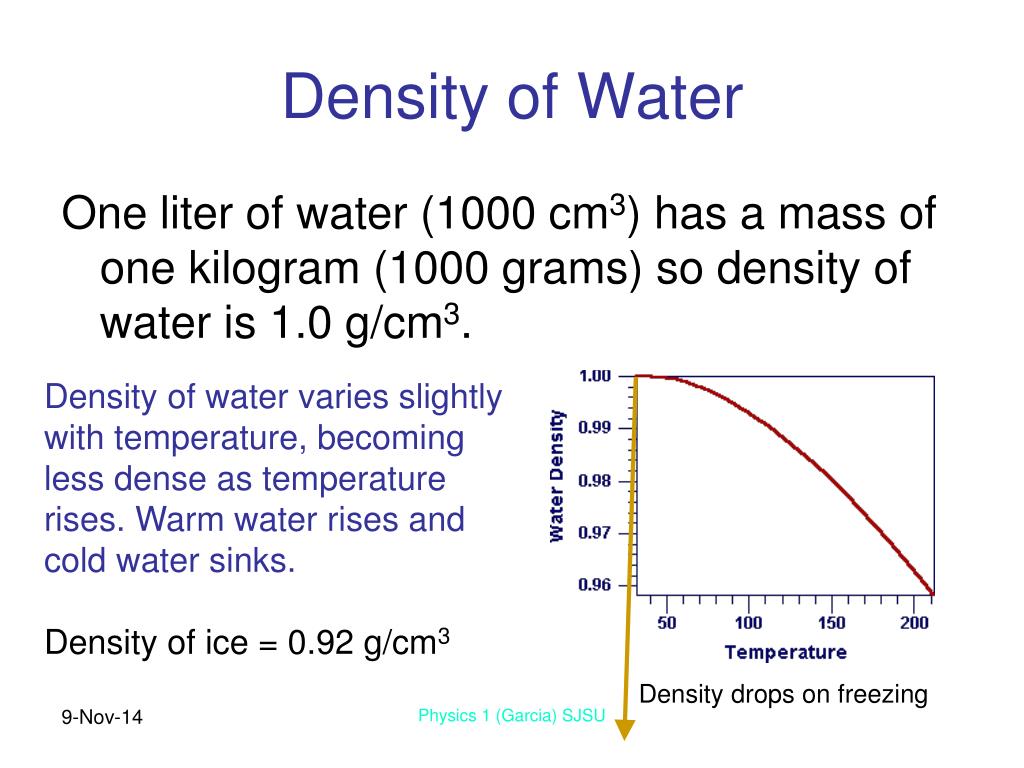Water, the elixir of life, is more than just a simple molecule. Its properties, especially its density, play a crucial role in various scientific, environmental, and everyday contexts. In this article, we delve deep into the density of water, exploring its significance, factors affecting it, and its applications.
Key Takeaways
- The density of water is a fundamental property that influences many natural and industrial processes.
- Temperature and salinity are primary factors affecting water’s density.
- Understanding water density is crucial for environmental science, engineering, and daily life applications.
What is the Density of Water?
The density of water is defined as its mass per unit volume. It is typically expressed in grams per cubic centimeter (g/cm3) or kilograms per cubic meter (kg/m3). At its maximum density, which occurs at 4°C (39.2°F), water has a density of approximately 1 g/cm3 or 1000 kg/m3. This property is pivotal in understanding the behavior of water in different environments and temperatures.
Factors Influencing the Density of Water
Several factors can affect the density of water, making it a dynamic property. Understanding these factors is vital for applications ranging from climate science to engineering.

Temperature
Temperature is one of the most significant factors affecting water’s density. As water is heated, its molecules move faster and spread apart, leading to a decrease in density. Conversely, cooling water causes molecules to slow down and come closer together, increasing density. This relationship is non-linear, with water reaching its maximum density at 4°C.
Salinity
Salinity, the concentration of salt in water, also affects its density. Seawater, with its higher salinity compared to freshwater, is denser. This principle is crucial in oceanography, where variations in salinity and temperature drive ocean currents and influence marine life.
Pressure

While pressure has a less pronounced effect on the density of water compared to temperature and salinity, it is still a factor, especially in deep-sea environments. Increased pressure at greater depths compresses water molecules, slightly increasing density.
Why is the Density of Water Important?
The density of water is a key parameter in numerous scientific and practical applications. Here are some areas where understanding water’s density is essential:
Environmental Science
Water density plays a critical role in environmental science, particularly in understanding ecosystems and climate dynamics. It influences how water bodies stratify, affecting nutrient distribution and aquatic life. Moreover, density-driven ocean currents are vital for global climate regulation.
Engineering and Construction
In engineering, especially in hydrodynamics and civil construction, water density is crucial for designing structures like dams, bridges, and ships. Engineers must account for water’s buoyancy and pressure to ensure stability and safety.
Everyday Life
In everyday life, the density of water affects activities such as swimming, fishing, and boating. It also plays a role in cooking, where understanding how ingredients interact with water can influence culinary outcomes.
Applications of Water Density
Beyond theoretical understanding, the density of water has practical applications across various fields:
Oceanography
Oceanographers study water density to understand ocean circulation patterns, which are essential for climate modeling and predicting weather patterns. The thermohaline circulation, driven by differences in water density, is a global conveyor belt that regulates climate by distributing heat.
Hydrology
In hydrology, water density is crucial for understanding groundwater flow and the behavior of rivers and lakes. It helps in predicting how pollutants spread in aquatic systems, aiding in environmental protection efforts.
Food and Beverage Industry
The food and beverage industry utilizes the concept of water density in processes like brewing and distillation. Understanding how ingredients interact with water can affect flavor, texture, and quality.

The density of water is a fundamental property with far-reaching implications. From environmental science to engineering and everyday life, understanding how water’s density changes with temperature, salinity, and pressure is crucial. This knowledge not only enhances our comprehension of natural phenomena but also informs practical applications that impact our world.
By grasping the intricacies of water density, we can better appreciate the complexities of the natural world and harness this understanding for technological and environmental advancements.